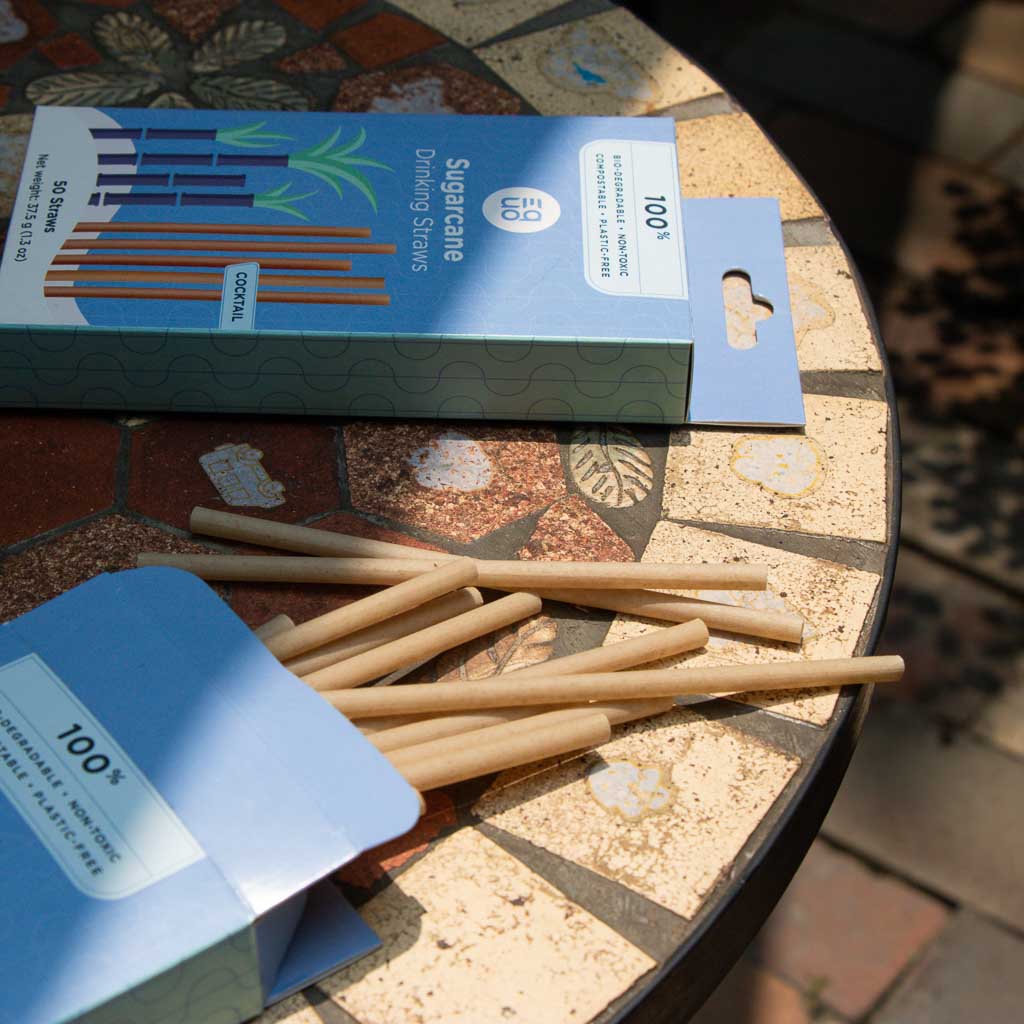As the world shifts away from single-use plastics, compostable straws have emerged as a sustainable solution. But what exactly are they made of, and how do they work?
Compostable straws are crafted from organic, biodegradable materials that break down naturally. Unlike plastic, which can linger in the environment for hundreds of years, these straws return to the earth in weeks or months.
Here’s a breakdown of common materials used in EQUO’s compostable straws:
-
Rice and Tapioca: These are among the most innovative. Edible and biodegradable, rice straws hold up well in cold drinks. Tapioca adds flexibility and structure, ensuring the straw doesn’t dissolve too quickly.

-
Grass: Grass straws are made from hollow plant stems found in Vietnam and Southeast Asia. These straws have a rustic, natural look and are completely untreated—just washed, dried, and cut.

-
Sugarcane Bagasse: This material is a byproduct of the sugar industry, which makes it a sustainable alternative. Once the juice is extracted, the remaining pulp is used to create straws that are lightweight and sturdy.

-
Coconut: EQUO’s coconut straws are durable and have a unique appearance. They’re made using the hard shell or husk of coconuts, a waste product that gets a second life.

How to Dispose of Compostable Straws To ensure your compostable straws break down properly, dispose of them in a composting environment—industrial composting is best, but home composting works for most types.
By choosing compostable straws, you're not just reducing plastic waste—you’re supporting a circular economy and encouraging innovation in sustainable design.


